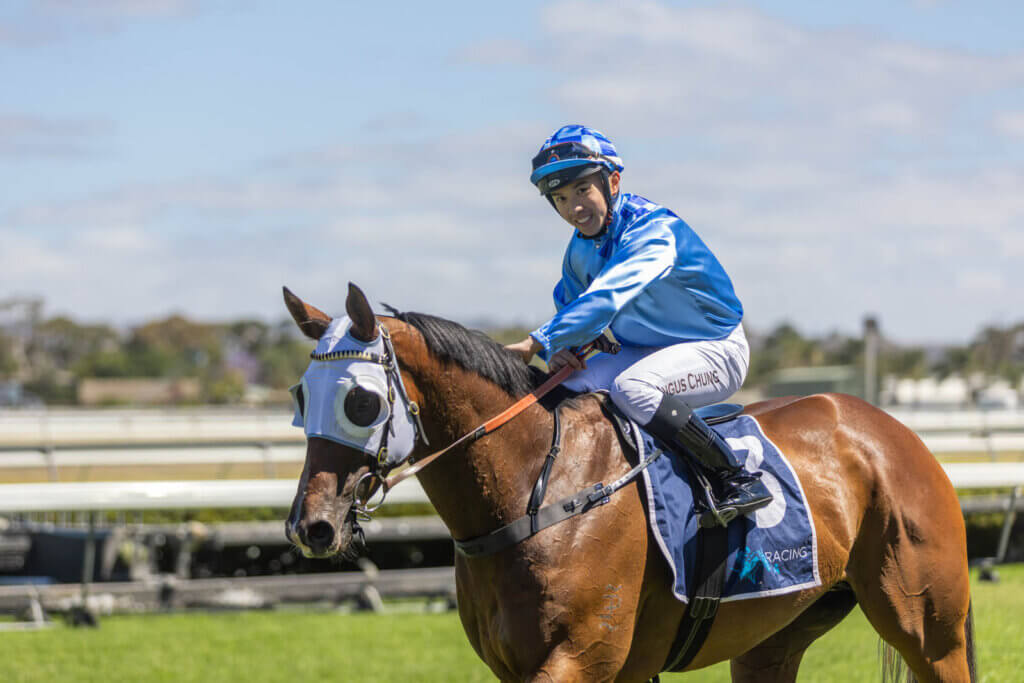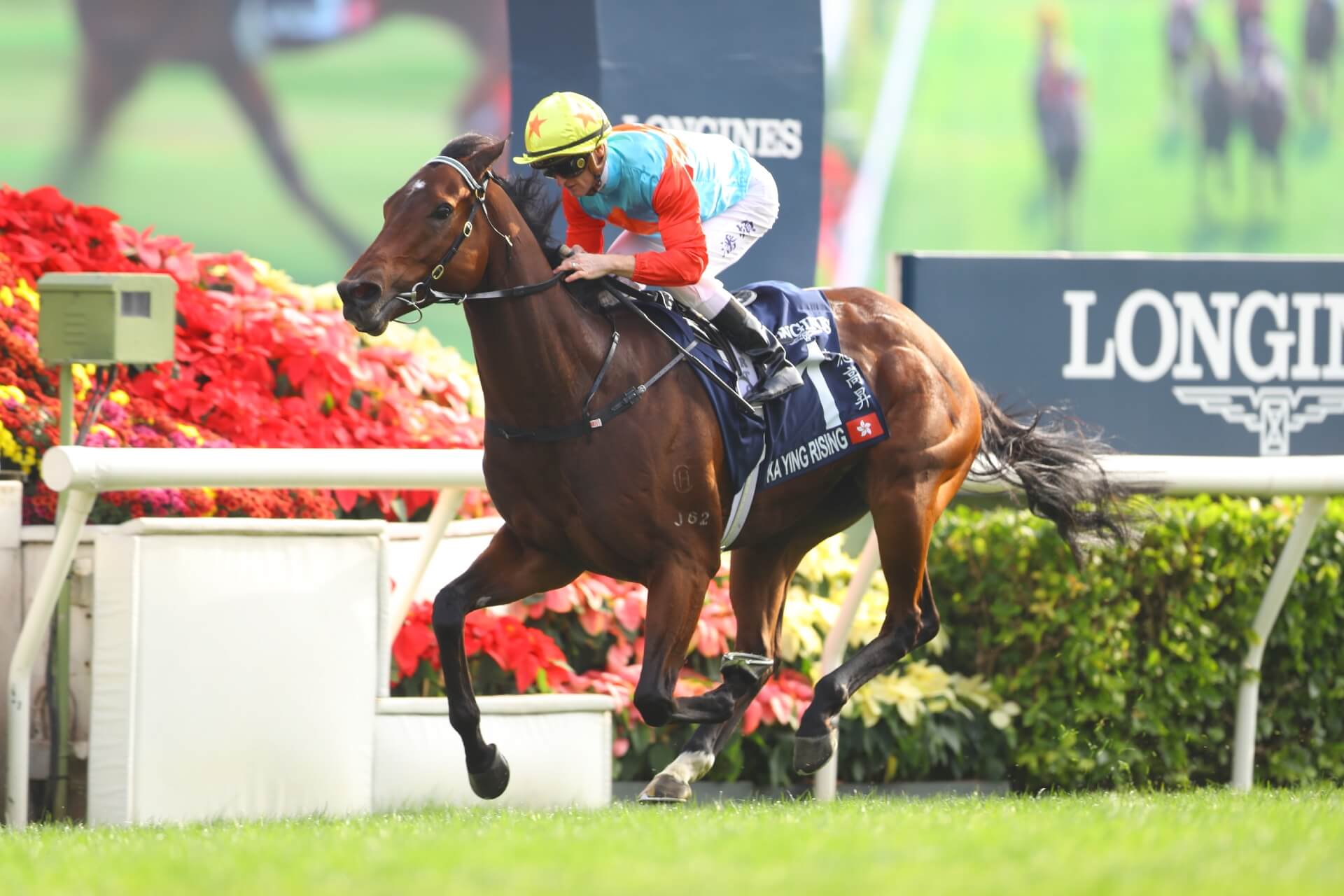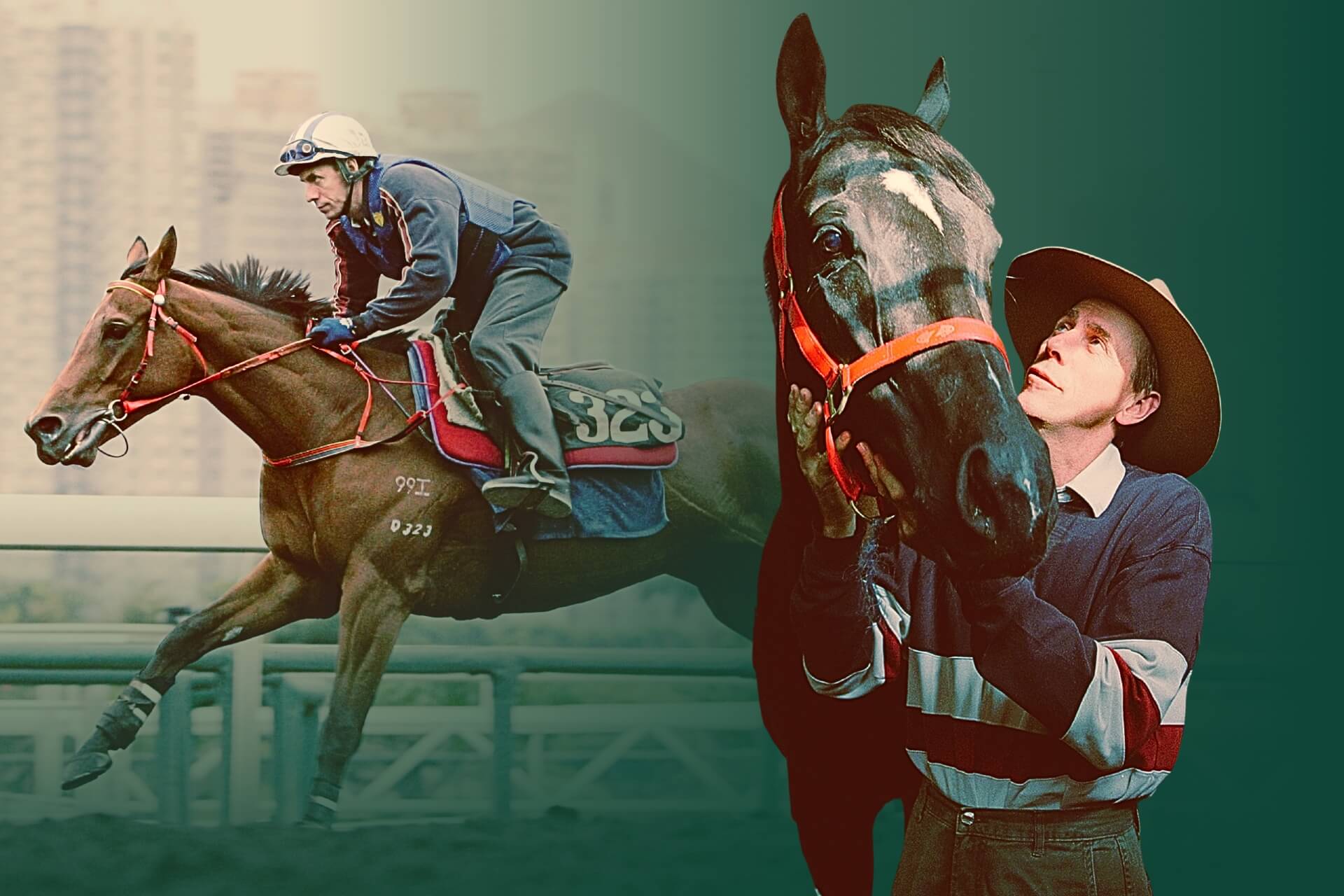Angus Chung Is Making Up For Lost Time
A late start and a Covid-19 delay means Angus Chung was left playing catch-up, but after two seasons in Hong Kong he’s already in the running for the Champions Award that is named after his mentor.
ANGUS CHUNG YIK-LAI didn’t dream of being a jockey when he was a boy, he had no notion that one day he would be steering thoroughbreds around Happy Valley and Sha Tin under the tutelage of a Hong Kong living legend. But after only two seasons of race-riding in the city, he is on the cusp of receiving the Tony Cruz Award, named after Chung’s now-mentor and presented to the season’s leading ‘homegrown’ talent.
That means Chung has ridden more winners this season than the likes of Vincent Ho, Matthew Chadwick and Derek Leung. He is eight wins clear of Ho, with only six race meetings to go. It could be touch and go whether he holds on and picks up that trophy at the end of season Champion Awards, but his 46 wins so far have him sitting top five in the table and that alone is a notable achievement.

In areas with established horse racing industries such as Australasia, Europe and the Americas, it is not uncommon for a jockey to be the son, daughter, nephew, niece or cousin of a jockey or racehorse trainer. Take Ryan Moore, Oisin Murphy, or Tommy Berry as examples of jockeys with family connections and early childhood exposure to horses and to the sport.
It’s different in Hong Kong, a bustling, high-density Asian city. Horse racing is extremely popular, but the big majority of kids there would rarely if ever see a horse in the flesh, so becoming a jockey is an uncommon career path that most young people would think is “out of reach”.
Footballer To Racing Trainee
When Chung completed his Higher Diploma (Post-Secondary education program), he wasn’t eager to find a long-term, full-time job like other friends of his age. He wanted to be a footballer, and he was talented enough to play in the Hong Kong second division for Yau Tsim Mong FT. But he realised that he was not destined to be a football star, so looked for another option. He found the Hong Kong Jockey Club’s apprentice trainee programme.
“My father would watch horse racing on TV in his spare time, that was it, so my knowledge of horse racing was really limited before I entered the industry,” he says.
“Since I was an athlete anyway, the physical fitness test during the application was not difficult to handle. However, when I attended the ‘experience camp’ in Beas River, I did not feel very comfortable when seeing horses for the first time.”

He smiles as he recalls that first day and the uncertainty of sitting astride a horse for the first time. That was in 2017.
“Maybe it was my bad luck that day, my horse seemed to be particularly big, like seventeen or eighteen hands tall,” he says. “I didn’t feel scared at the time, but I had to be careful throughout the process, but luckily I got the job anyway.”
Playing Catch-Up
A lot of jockeys might already have an idea at age 13 or 14 that they want to be ‘the next Frankie Dettori.’ But by the time Chung stepped into the stable for the first time, he was already 21 years old.
“Because I started late and had no foundation in the sport, I always felt that my abilities were inadequate. But because I recognized the limitations, when a rare opportunity came to me, I was even more eager to do my best. I’m glad that my hard work paid off and I received a notification that I was officially admitted as an apprentice jockey after about 18 months of training,” he says.
He reflects with hindsight that the training plan was well-established, that the school knew the backgrounds of the students, knew that their riding experience was very limited, and that the time frame to get them up to standard was tight.
“The training process was ‘step-by-step’ but would not stick to any rigid rules or schedules,” he says. “When individual students reach a certain standard, they will immediately arrange for the next stage of training. I was completely unfamiliar with riding at first, but six years later I was able to compete with world-class jockeys in high-level races, isn’t that incredible? These days are really fulfilling, and every day’s training is an intensive class, and I don’t want to waste a minute of it.”
Chung was sent to Adelaide, Australia, for training at the end of 2019 and worked for trainers Tony and Calvin McEvoy, and Jon O’Connor.

“I only rode in four barrier trials in Hong Kong before I left,” he says. “The local Jockey Club in Australia required me to complete 30 trials before I could qualify for the race, but unfortunately the Covid-19 pandemic happened soon after and the trials were suspended, which delayed my progress a lot. I had to wait for the pandemic to ease, and it was more than a year later that I was allowed to compete in official events.
“During the pandemic, travel was restricted, and life became boring. I was used to group life in a football team, while being a jockey is an individual-oriented profession. That time in Adelaide wasn’t easy, but it gave me the opportunity to exchange experiences with local jockeys, learn to cope with stress, and learn to take care of my body and emotions,” he added.
Toughing It In Hong Kong
Chung returned to Hong Kong and was assigned as an apprentice to the stable of Hong Kong’s greatest homegrown jockey, and champion trainer, Tony Cruz ahead of the 2022/2023 racing season. His first win came on his second race day, a horse called Quadruple Double, and he ended the season with a solid 31 wins.
“Even though I won more than 70 races in South Australia, the scale of the competition in Hong Kong is much greater, the level is higher, so I was inevitably nervous before returning to Hong Kong,” he admits.
“Things happen more quickly in the races here and they are more complicated. Take a 1650m race at Happy Valley as an example, whenever the pace becomes too slow, someone will notice that something is wrong and make a decisive move halfway. Apprentice jockeys have more opportunities to make the run in a race, pace control is particularly important, it can’t be too fast and it won’t work either if you go too slow. You must always be alert to every move of your opponent.”
With the likes of multiple champion Zac Purton, Hugh Bowman, Karis Teetan, Andrea Atzeni, and Ho, competition is fierce in Hong Kong. It has been a steep learning curve and Chung was instructed to have remedial training after a few suspensions for careless riding. He turned to Purton for guidance.
“It’s hard when you get suspended, but I understand that being humble and listening to the right people are the best ways to improve. After talking with Zac Purton, I really started to understand why he’s so successful. He not only knows about his own rides, he knows the main opponent’s usual tactics and how far they can sprint, so it’s no wonder that he can respond quickly and accurately in different situations.”

Purton had good things to say about Chung, too.
“I wouldn’t go so far as to say I’m Angus’s mentor, but I did invite him to my apartment to review race videos together,” he said. “He is still young in his career, so you can forgive those occasional mistakes he might make in races.
“Riding requires confidence, and confidence comes from knowledge, and I just discussed it with Angus, but I shouldn’t take any credit for what he’s achieved. He is a very hard-working and intelligent jockey, and his performance is constantly improving, and I’m pleased to see his progress.”
In addition to receiving guidance from the reigning champion, he is appreciative of being apprenticed to Cruz. In addition to his outstanding riding career, Cruz has been crowned the champion trainer twice and has trained numerous Group 1 winners, notably the iconic Silent Witness.
“I already knew that I had been assigned to Tony’s stable before I came back, and I felt happy and nervous,” Chung says.
“The happy part was that I was lucky enough to study under a famous master, but the nervous part was that I had heard that he was very strict with everyone in the stable. I was worried that I wasn’t up to his standard. After two years working with him, I feel that he’s not as difficult as he was rumoured to be.
“Perhaps because he was also an apprentice here, he is very aware of the needs of young jockeys and has never hesitated to put me on his good horses. Without his support, I would not be able to win as many races as I have and because of this, I feel particularly excited every time I win for Tony.”

What Next?
Chung is both patient and keen to progress his career and make up for the fact that he is already in his late 20s with only two Hong Kong seasons under his belt. When talking about his future prospects, he does so with humility and a sense of perspective.
“My master Tony has made outstanding overseas achievements as a jockey in the past and I certainly hope to follow in his footsteps one day and have the opportunity to race in places such as Japan and the United Kingdom to appreciate different horse racing culture,” he says.
“But at the moment, I have not yet developed my skills in the saddle. I’m not ready yet and I should not rush it. I hope to strive for good results in Hong Kong next season and if I can get a ride or even win in a Group race, I’d be very pleased with that.”




